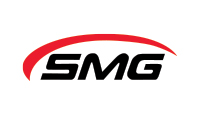We manage energy project development, environmental permitting, remediation and compliance, insustrial hygiene, health & safety, auditing, environmental management, government relations. We solve your problems in all of these areas. We move quickly and dig deeply to reach your goals. We work wherever you are.
How can SMG help you?
SMG POV
Toxic Release Inventory (TRI) Electronic Reporting Rule Finalized
WRITTEN BY
Shri Vani SripadaTAGGED
EPA has published a final rule requiring facilities to report all non-trade secret Toxics Release Inventory data to EPA using the TRI-MEweb online reporting application. This rule is effective from January 21, 2014. Once the rule becomes effective, facilities submitting non-trade secret TRI reporting forms for the 2013 TRI reporting year (forms due on July 1, 2014) or prior reporting years must report electronically.
This rule also requires facilities to electronically submit any revisions or withdrawals of previously submitted TRI reporting forms. Facilities may revise or withdraw TRI forms going back to reporting year (RY) 1991, but not for years prior to this.
The few facilities that submit trade secret TRI information will continue to submit their trade secret reporting forms and substantiation forms in hard copy, as well as any revisions or withdrawals of previously submitted trade secret information.
For more information, click here.
FEATURED PROJECT
PROBLEM
A local company engaged in manufacturing imported a small amount of a chemical substance defined under TSCA. Faced with a potential EPA enforcement action with penalties assessed for noncompliance under TSCA of up to $32,500 per day per violation, the company called SMG for help.
SMG'S APPROACH
SMG analyzed the company’s current TSCA procedures and assisted the company in developing a proactive, cost-effective compliance procedure. SMG also facilitated a training program to educate employees about TSCA.
MG worked with the company to develop mechanisms that assured adherence with the policies that were being implemented for compliance. Procedures to promptly correct any potential violations and prevent future violations were also put into place.
RESULTS
SMG was able to show that the company complied with the relevant TSCA regulations and was improving their TSCA policies and procedures to assure that future issues were less likely to occur. The company was not subjected to the proposed penalties and now has mechanisms in place to maintain TSCA compliance.
